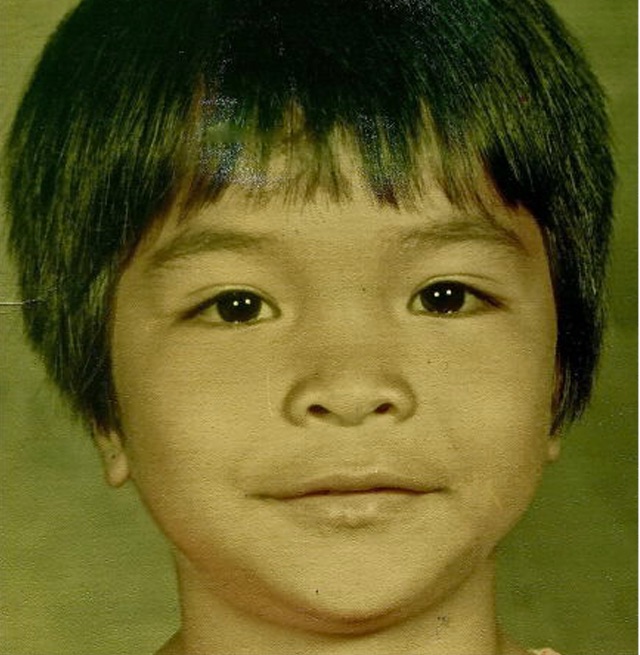This is La Sarmiento’s story. Until La discovered meditation, self-love and acceptance were hard to come by.
In this interview, La shares a sometimes heartbreaking, but ultimately uplifting story.
I recently interviewed La on the Untangle Podcast, from Meditation Studio. Here are some written highlights below.
What did it feel like, at the age of 5, to not know if you were a boy or a girl?
I distinctly remember being on the kindergarten playground and noticing that I had crushes on little girls and not the little boys. I thought there must be something wrong with me. Whenever my mom would put me in a dress, I would cry. I always felt that I was not normal.
Did you tell anybody how you were feeling?
It was the early 70’s and my parents were very conservative. I kept a good cover, always giving the impression that I was happy. I was successful as a student and as an athlete, trying to make up for the fact that I felt defective in my own eyes. I would feel deep sadness, grief and depression on the inside, but on the outside, I was very popular; voted funniest and friendliest in ninth grade and most likely to succeed in high school. I covered it up really well.
Did you identify as a Lesbian then?
Yeah, I think that was the only word that I knew at the time. As a teenager growing up, there were gays and lesbians. I thought, “Well, if I’m technically a female and I’m attracted to other females, then that makes me a lesbian.” I never really resonated with that word. I didn’t feel like a female, so it was complicated. When the term transgender started coming up more in the early 90’s, that sounded closer to how I identified in terms of my identity.
How do you feel when people don’t see you for who you are?
For someone like me, who identifies as gender non-conforming, when someone mis-genders me, calls me a ‘she’ or a ‘he’ versus ‘they’ (which is the pronoun that I use), it taps into my core suffering; that wound of feeling invisible. It feels like people don’t see or respect me for who I am and that’s always painful.
When you first started practicing meditation, what was it about your practice that helped you be more yourself?
Before I started meditating, my strategy for being loved and accepted in the world was to be what everyone else wanted me to be. Even though I was meeting others’ expectations, I wasn’t happy. What I learned was that I couldn’t depend on anything outside of myself to make me happy. I had to do that for myself. When I meditated or sat on retreats, I began to notice the stories that I would tell myself like “Oh, you’re not good enough. Oh, you’re unattractive. Oh, you’re not smart enough. I got caught in this suffering of comparing myself to others and I noticed that whenever I did this, I would suffer more. After years of meditation practice, I just decided, “You know what? I don’t want to suffer anymore. I want to be kinder to myself. I want to be human. I want to allow myself to not be perfect.”
My first teacher was Tara Brach, who wrote the book ‘Radical Acceptance.’ These teachings of self-love, deep compassion and acceptance for one’s self, were so important for me.
How has your Vipassana meditation practice changed you?
It has allowed me to be more of who I am and to be really comfortable with that. I’m saying that from a place of not only my identity as a person of color or my identity as a transgender person but more of the fullness of my humanity. I can love and accept and honor the parts of me that experience anger or sadness; the parts of me that experience grief or fear; the parts of me that for a long time had a really difficult time receiving love. I now have the capacity to relate to whatever is happening — the full catastrophe of life (as Jon Kabat-Zinn calls it) — with as much compassion, kindness, gentleness and understanding as possible.
How can we create a culture that understands these differences between us?
First, we have to each understand ourselves. Meditation helps enormously with this. Once we understand ourselves, we begin to accept all the ways we’ve suffered and we can open up to our shared universal suffering. Next, we can become more aware that we all suffer, and then we can begin to treat each other differently. We need more courage, strength and acceptance to engage more openly. We have to put down our ideas of who we think others are, try to understand another’s experiences…and to welcome all of this into our hearts.
You can hear the interview here. To kickstart your meditation practice, try Meditation Studio, featured as one of Apple’s ten best apps of the year.
Patricia Karpas is the co-founder and head of content for Meditation Studio LLC, the home of Meditationstudioapp.com. This 5-star app includes 200 meditations, 16 collections, 3 courses and 27 teachers. The app focuses on stress, anxiety, pain, sleep, happiness, confidence, performance and so much more, providing tools for beginners and experienced meditators. It’s a must have! She’s also the host of Untangle, the podcast that showcases the stories of experts, authors and real people whose lives have been transformed by meditation or mindfulness practices.












